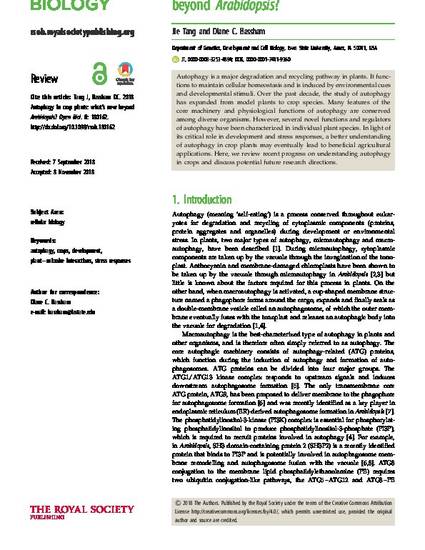
Autophagy is a major degradation and recycling pathway in plants. It functions to maintain cellular homeostasis and is induced by environmental cues and developmental stimuli. Over the past decade, the study of autophagy has expanded from model plants to crop species. Many features of the core machinery and physiological functions of autophagy are conserved among diverse organisms. However, several novel functions and regulators of autophagy have been characterized in individual plant species. In light of its critical role in development and stress responses, a better understanding of autophagy in crop plants may eventually lead to beneficial agricultural applications. Here, we review recent progress on understanding autophagy in crops and discuss potential future research directions.
Available at: http://works.bepress.com/diane-bassham/26/

This article is published as Tang, Jie, and Diane C. Bassham. "Autophagy in crop plants: what's new beyond Arabidopsis?." Royal Society Open Biology 8, no. 12 (2018): 180162. doi: 10.1098/rsob.180162.